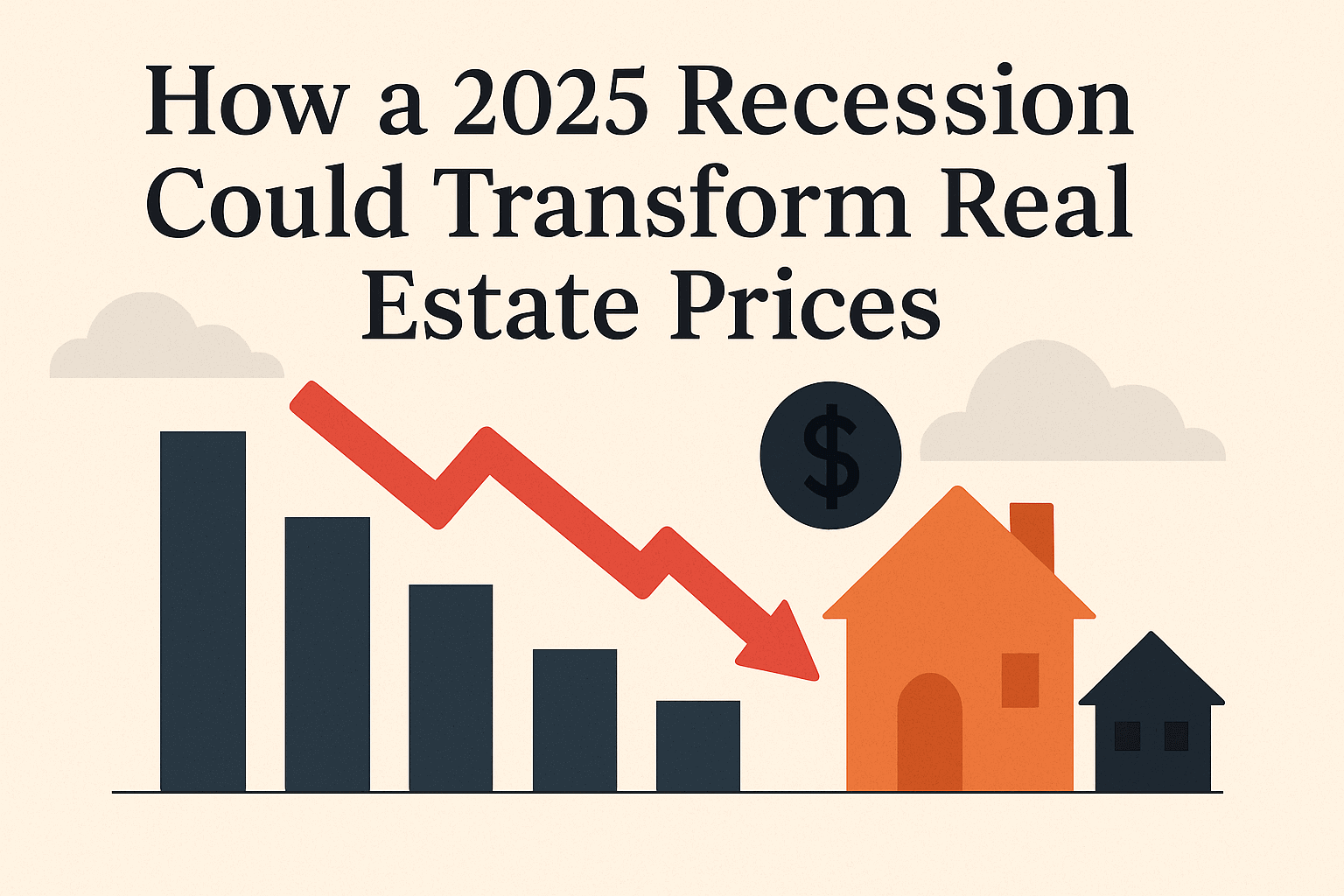
The warning signs are hard to ignore. Interest rates keep climbing. Inflation refuses to budge. Global markets swing like a pendulum. If you own a home or want to buy one, you're probably asking the same question millions of Americans are asking: What happens to the housing market during a recession?
The answer isn't simple. Every recession tells a different story, and 2025 brings factors we've never seen before. Here's what history teaches us and what makes this time unique.
When the economy shrinks, the housing market feels the squeeze. Recessions bring job losses, tighter credit, and nervous consumers who postpone major purchases. The result? Fewer people buy homes. More sellers compete for fewer buyers. Price growth slows or reverses.
But here's the catch: not every recession crashes the housing market. The 2008 financial crisis devastated home prices because banks made reckless loans and builders flooded the market with houses nobody could afford. Compare that to 2020, when home prices soared during the pandemic recession because interest rates plummeted and families wanted bigger spaces to work from home.
The housing market during a recession depends on what caused the recession and how much inventory exists—similar to how economic conditions can impact your personal FIRE strategy.
Let's examine three key examples:
The 2008 Financial Crisis gutted home values. Prices fell 30% in some markets because the recession started in housing itself. Banks foreclosed on millions of homes, creating a massive oversupply.
The Early 1990s Recession saw home prices drop modestly in most areas, with some regions like California and the Northeast hit harder due to defense spending cuts and banking problems.
The 2020 Pandemic Recession defied expectations. Despite economic chaos, home prices rose as remote work changed buyer preferences and the Federal Reserve cut interest rates to near zero.
The pattern is clear: the cause of the recession matters more than the recession itself, much like how nominal and real interest rates influence different financial markets.
A 2025 recession would unfold in conditions we've never experienced:
Housing supply remains tight. Construction workers are scarce. Building materials cost more. Many homeowners are locked in mortgage rates below 3% and refuse to sell, creating what economists call the "rate lock effect."
Inflation complicates everything. Past recessions often brought falling prices across the board. Today's inflation means some costs stay high even as demand drops.
Demographics drive demand. Millennials, the largest generation in history, are hitting their prime home-buying years. Even in a recession, many will need housing—especially those building toward long-term financial independence.
Remote work reshapes markets. People can live anywhere with good internet access. This spreads demand to areas that were once considered too far from major cities.
The answer depends on two forces: how much demand falls versus how little supply exists.
If unemployment spikes and mortgage rates stay high, demand could crater. In that scenario, expect price drops of 10-20% in overheated markets like Austin, Phoenix, and parts of Florida.
If the recession stays mild and housing supply remains limited, prices might flatten rather than fall. Think 0-5% declines in most markets, with some areas seeing continued modest growth.
Current forecasts suggest the second scenario is more likely. Most economists predict home prices will decline 5-15% nationally if a recession hits, with recovery beginning in 2026. For buyers, this makes understanding how much house you can afford more important than ever.
The housing market during a recession can offer opportunities. Sellers become more flexible. You'll face less competition. Properties might sit on the market longer, giving you time to make thoughtful decisions. But don't wait for a crash that might never come. If you find a home you can afford and plan to stay for several years, economic timing matters less than personal timing. You might also benefit from strategies outlined in The Complete Guide to Leveraging Debt for Real Estate.
Price your home right from the start. In a recession, overpriced homes sit empty while fairly priced ones still sell. Consider offering incentives like covering closing costs or including appliances. Be prepared to negotiate more than you would in a hot market.
History shows that housing markets recover from recessions. Yes, the housing market during a recession faces challenges. Prices may fall. Sales slow down. But real estate remains one of the most reliable long-term investments because people always need places to live—similar to why property investment analysis remains a core financial skill.
The 2025 recession, if it comes, will create both risks and opportunities. Success depends on understanding your local market, knowing your financial limits, and making decisions based on facts rather than fear.
At Planwell, we created an automated AI financial planner and advisor to guide you through personal financial decisions. Our platform estimates how much house you can afford while factoring in your lifestyle, retirement goals, and other priorities.
Our beta version is now available on our home page. Try our free beta today and start making informed financial choices.